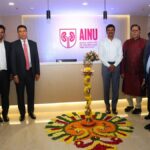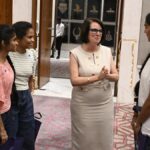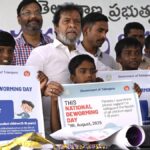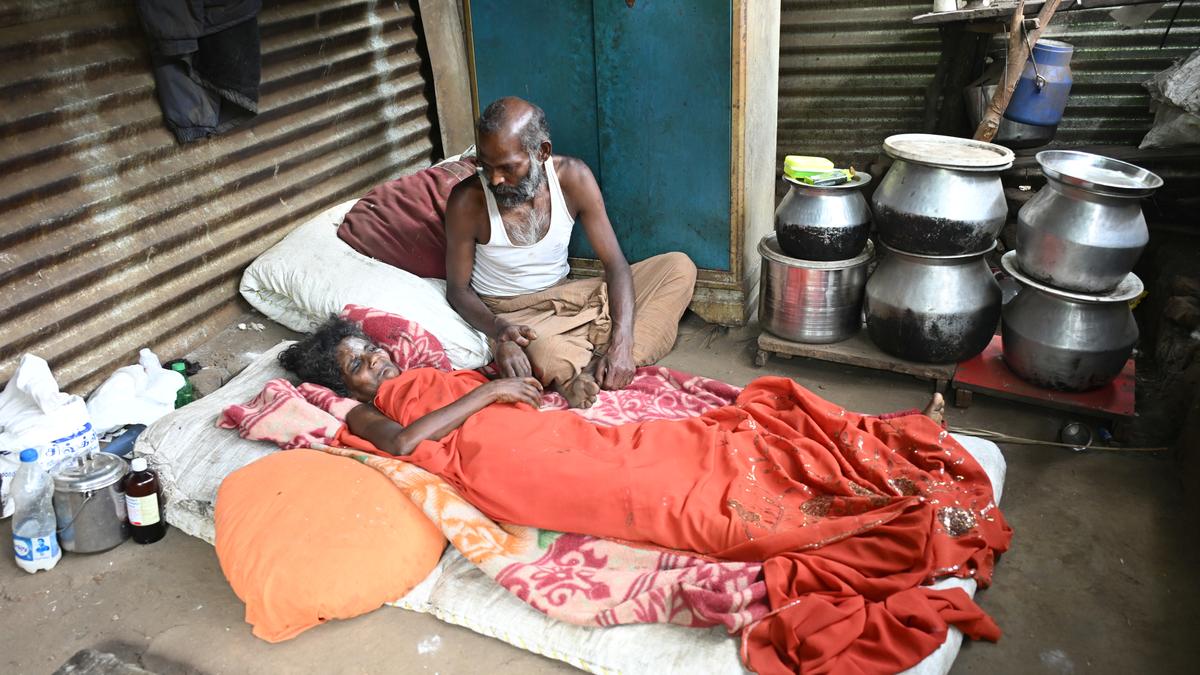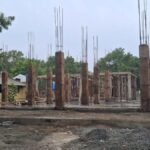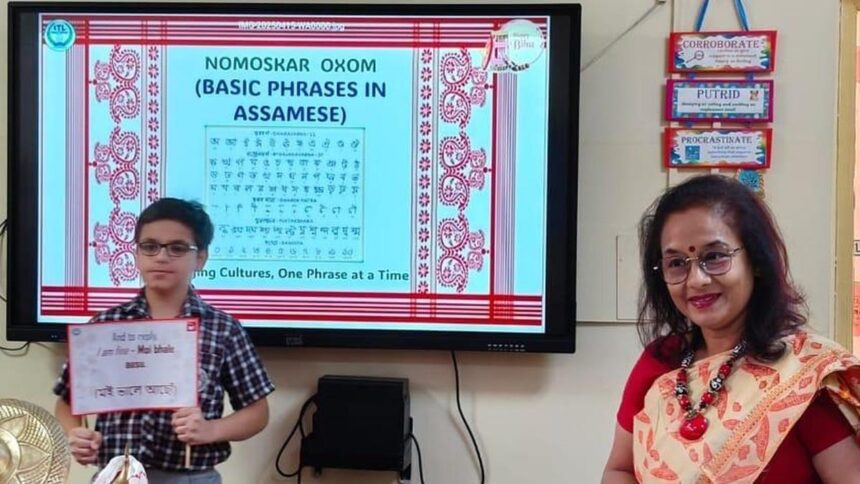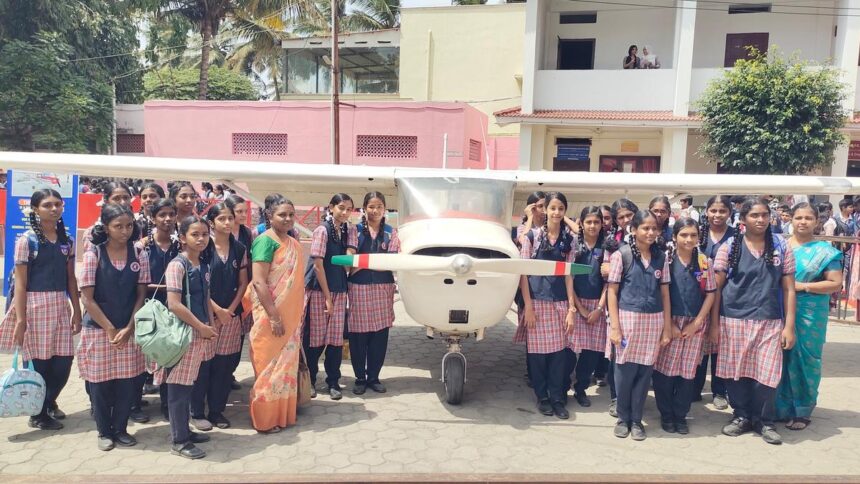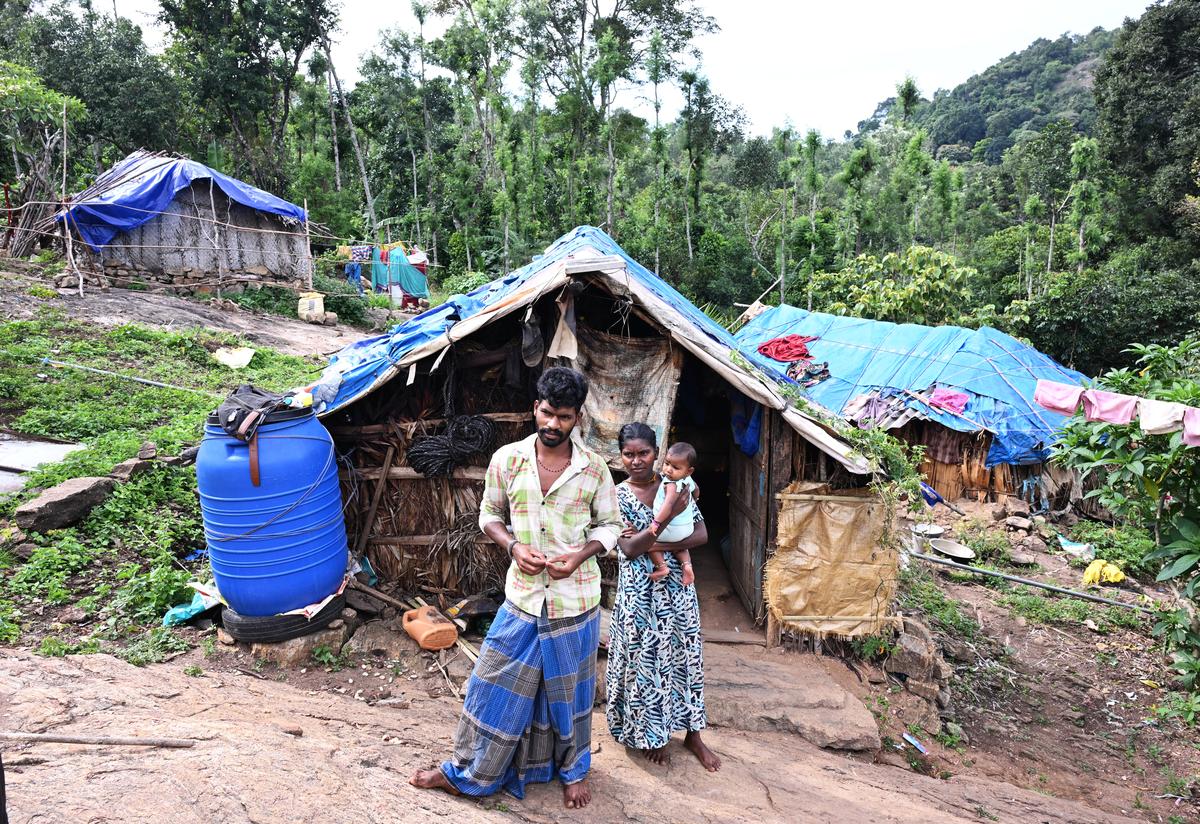
K. Kaleeswari, a tribal woman residing in a remote hamlet named Malaiayakadu on Kodaikanal hills, who gave birth to a baby girl in an ambulance.
| Photo Credit:
G. MOORTHY
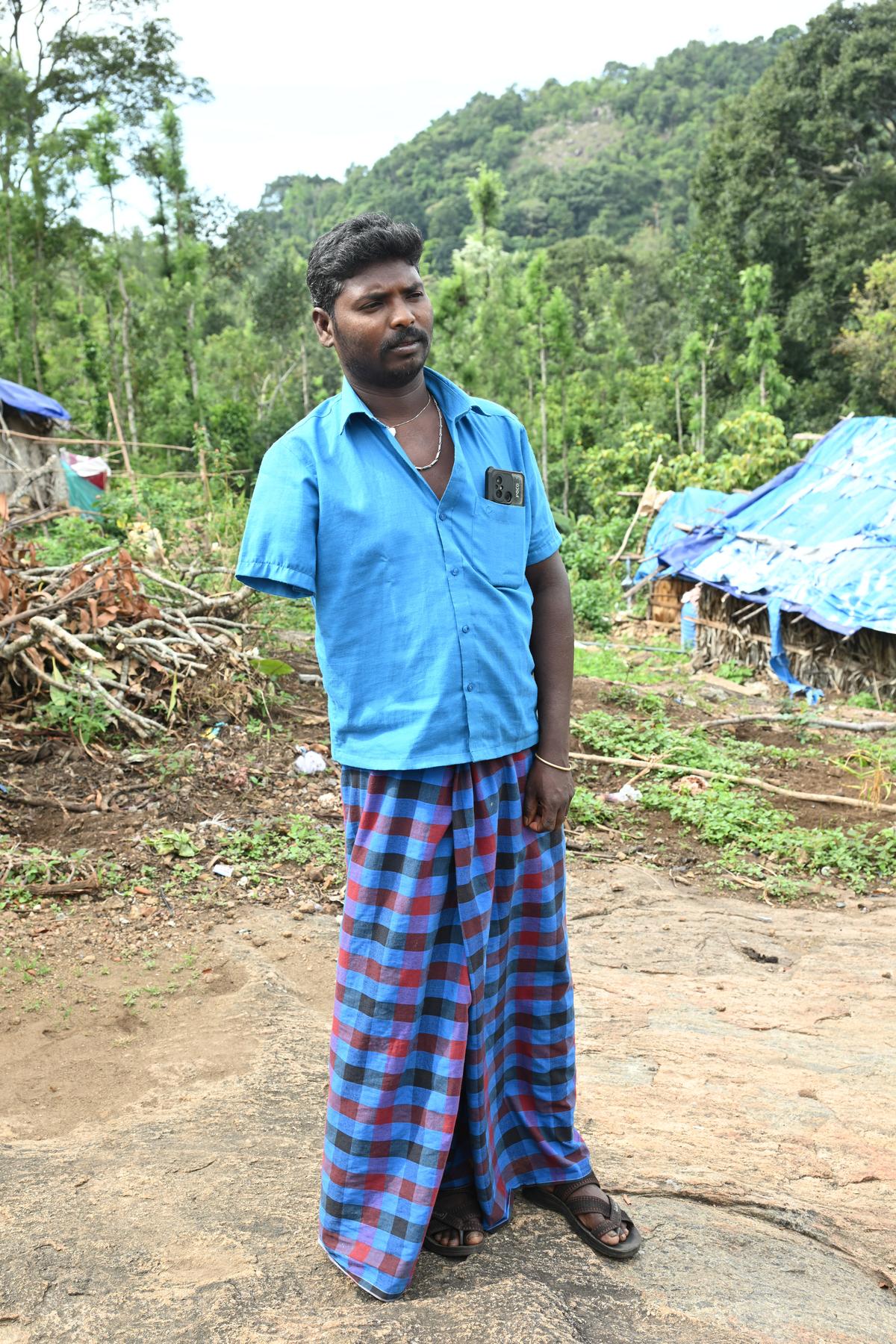
Jayasuriya, a differently abled man, of Malaiayakadu.
| Photo Credit:
G. MOORTHY
“The less than a-year-old infant I carry in my hands was born in an ambulance in the presence of my husband, a village youth and a male nurse,” says 23-year-old K. Kaleeswari, a tribal woman residing in a remote hamlet named Malaiayakadu on Kodaikanal hills.
Sensing a strong pain in her stomach on an evening about few months ago, Ms. Kaleeswari alerted her husband and villagers through a loud cry. They rushed her to the nearby Thandikudi Government Hospital in a private vehicle.
The hospital, which runs in an acute shortage of doctors and even basic facilities for any medical procedures, could not handle the wailing woman.
Soon she was put in a ‘108’ ambulance stationed on the hospital premises.
As the ambulance sped through the narrow hilly roads with the patient, her husband, a relative and a male nurse, on board, within a few kilometres, Ms. Kaleeswari, unable to bear the labour pain, gave birth to a female child.
Though both the mother and child are safe, most of the villagers, with a medical history, were able to resonate with such cinematic adventurous experiences.
The Kodaikanal hills, known for its lush green environment providing a serene experience to the thousands of tourists visiting every month, on the other hand, is also a house to several tribal communities.
The communities, lagging in education, health and economically, still rely on the forest for their livelihood. The younger generation who has not been trained as forest dwellers, are dependent on private estates and resorts for the menial paying jobs they offer.
B. Suppan, 55, a village head in Malaiyakadu, says their villages were devoid of even basic facilities like electricity, drinking water, a good overhead roof, education, among others.
Stressing on their financially unstable living condition, he adds that they could not even think of getting treated in a private hospital.
“The cyclone Gaja which ravaged our concrete houses located on the hilltop, also took away the documents, appliances, and our hard-earned money,” he recalls.
Following the cyclone, their life went in a community hall for over a year, until a non-governmental organisation called PEAK built them temporary shelters.
Their life, continuing in the temporary shelters built of asbestos sheets, saris and dhotis, has always been overlooked by the mass government schemes and programmes, boasted to serve the public and poor, he notes.
Notwithstanding the three GHs located in Thandikudi, Panaikadu, Kodaikanal and other Primary Health Centres, for all major treatments and medical procedures, they are directed to the GHs located in the plains – Theni and Dindigul, he adds.
Pointing to a differently abled youth with one hand, Mr. Suppan recalled the story of how the youth lost his hand due to medical apathy.
“The 31-year-old man Jayasuriya, who survived a road accident with minor scratches and injures on his hand when he was 10 years old, was treated at a local government hospital for his wounds and was sent back,” he adds.
Fast-forward to 2021, Mr. Jayasuriya, who was working in a private estate as a tree-climber until 2021, experienced swellings and infections in his right hand.
“In a private hospital in Dindigul, I underwent several tests and scans, but doctors could not save and suggested removal of the infected part as the only solution to save other parts,” he painfully recounts.
In about five-kilometre distance from Malaiyakudi lies another village named Valaigiri.
There, the 55-year-old bed-ridden woman Palaniammal, was another example of how the health programmes like ‘Makalai Thedi Maruthuvam,’ could not identify those people who needed such schemes the most.
Just three months ago, Ms. Mariyammal did all the household chores and took care of her husband and son. “Being unaware that she had high blood pressure, she neglected all the symptoms her body hinted,” says her husband Murugan, 60.
On one fine day, her BP shot up and she became unconscious. As she was rushed to Pannaikadu GH, from there, she was referred to Theni Government Medical College Hospital.
“Doctors treating her for few days, said they were not hopeful about her survival and asked me take her back home,” he adds.
Mr. Murugan, who had already spent more than ₹3,000 on all the medical and travel expenses, could not afford to take his wife to Government Rajaji Hospital in Madurai or any other private hospital for specialised treatment.
“Since I did not go to work to take care of my wife, I am barely left with any money. All I can do is pray and hope that my wife’s health gets better,” he says.
Owing to the improper medical treatment, her situation worsened, and she suffered a minor stroke recently which stopped her body movement entirely.
In other nearby villages like Kadukuthadi Pudur in Thandikudi panchayat too, due to the medical negligence, many women had delivered babies in their houses itself.
A. James, a social worker based in Kodaikanal, says several villages located in the hilly terrains housing thousands of tribal people belonging to Aadhi Paliyar community are still out of reach of the medical programmes designed to serve the medical needs of the poorest of the poor.
“These people cannot be just termed as poor, but they also lack even basic knowledge of their health,” he notes.
Due to the poor nutrient diet, almost everyone in the villages is malnourished. “Their malnourishment can just be identified by seeing how thin and how short they are,” he adds.
Mr. James states that many of the villagers were anaemic. Instead of treating the people for the condition, the doctors and the hospitals, for name’s sake, just treat their co-morbidities, thereby neglecting the core cause of the issue, he observes.
Only by dealing with the core issue, the overall health of the tribal population could be improved, and the problems be resolved, he adds.
A. Veronica Mary, a health-activist based in Madurai, who sought information through Right To Information (RTI) Act about the number of deliveries recorded in Thandikudi GH, says the number was appalling as the data showed that only two deliveries were done in the GH for two years.
“The data was not just about the delivery performed in the hospital, but to ascertain how strong or poor the functioning of the hospitals is,” she adds.
When the tribal people’s only resort to their health problems are the GHs and PHCs, how could the health system be so weak, she questions.
By repeatedly referring the people to hospitals in the plains located several kilometres away, the people over a time, would stop visiting the hospital for any of the health issues, she adds.
She says that the people just by spending money for their travel could exhaust their one-month savings. That is how their financial situation is, she adds.
As the health programmes and schemes are not reaching the needy, how could the government boast of their success, she notes.
When the GHs where the presence of doctors is very critical, they are functioning without permanent doctors. “The RTI revealed that the hospitals in Kodaikanal were running with an acute shortage of doctors and health workers,” she says.
The district administration, instead of blaming the disinterest of the doctors to work in hilly terrains should find an alternative way to appoint doctors in the hospitals there, she adds.
A senior revenue official in Dindigul district said they would investigate the functioning of ‘Makkalai Thedi Maruthuvam,’ scheme.
“The issue of doctors’ shortage will be taken to the Collector, and a solution is expected,” the official added.



